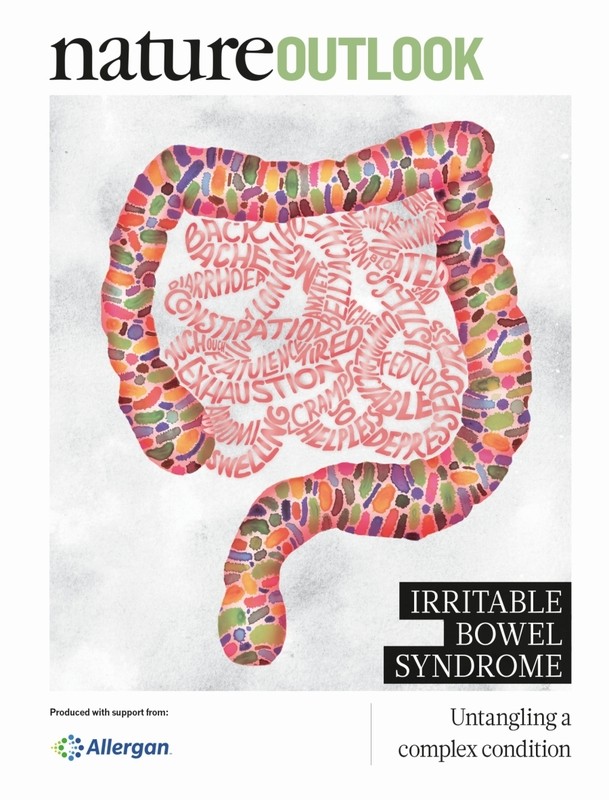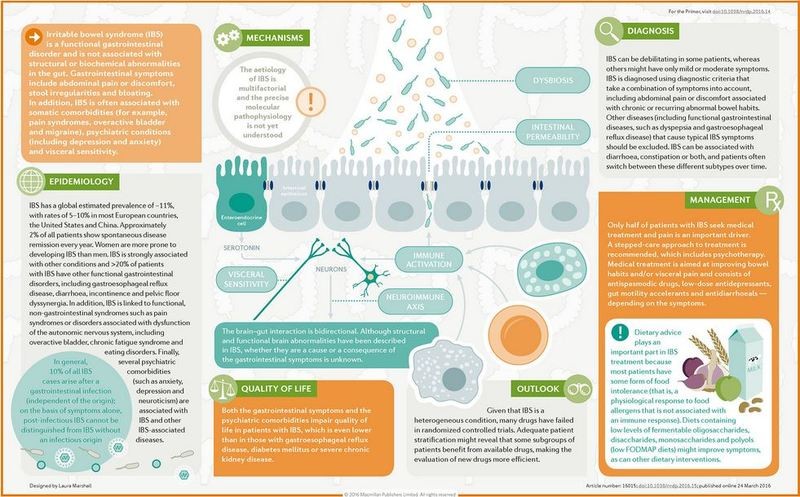PrimeView
Irritable bowel syndrome is a gastrointestinal disorder that can be mild in some patients, but debilitating in others. This PrimeView from Nature Reviews Disease Primers focuses on the complex aetiology and current understanding of the molecular pathophysiology, involving intestinal permeability, microbiota, inflammation and visceral sensitivity, among other factors. For more detail, see the accompanying Primer.

Nature Outlook
Irritable bowel syndrome is one of the most common gastrointestinal disorders. Although the stigma surrounding the syndrome is fa
lling away, many physicians and research funders still consider it to be a mild condition that does not merit substantial investment. As research slowly progresses, there is increased hope for treating, or perhaps preventing, this always unpleasant and in some cases severe condition. Read the Nature Outlook here: http://www.nature.com/nature/outlook/ibs/.
For more on IBS on nature.com, see: http://www.nature.com/subjects/irritable-bowel-syndrome


